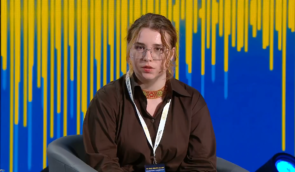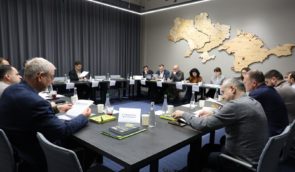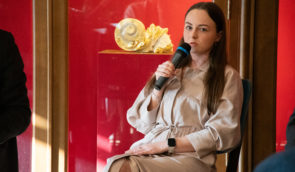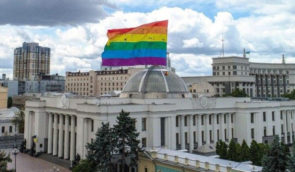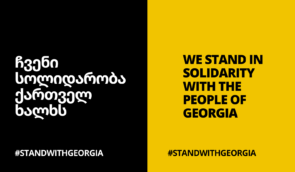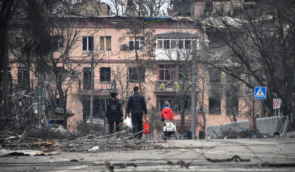ZMINA together with its partners holds an event on the deportation of children and detention of civilians by Russia in New York
On December 13, at 3:00 pm (New York time), ZMINA together with its partners holds an event “Victims-centered justice: Experiences from Ukraine” within the Assembly of States Parties to the International Criminal Court in New York.

The event is organized by Ukrainian NGOs — International Renaissance Foundation, Center for Civil Liberties, Truth Hounds, Media Initiative for Human Rights, ZMINA Human Rights Center, Ukrainian Legal Advisory Group — with support of Sweden and Ukraine.
Following its aggression against Ukraine, Russia deported dozens of thousands of civilians, including children, to its territory. At least several thousand of these individuals remain detained and are held in inhumane conditions without any legal basis and outside of any legal procedures. Ukrainian human rights organizations have identified over 80 detention facilities in which the Russian authorities are holding civilian citizens captured in the temporarily occupied territories of Ukraine. These civilians are held in isolation; international missions, human rights organizations, or lawyers have no access to them. They are systematically subjected to torture and inhumane treatment. The cases of deaths in detention due to torture and lack of medical assistance are documented.
Furthermore, Russia consistently obstructs the possibility of these individuals returning to Ukraine. Such treatment of civilians, including children, is not new and has been observed in many other armed conflicts. However, the international justice system has mostly failed to respond to such practices. Imprisonment or enforced disappearance of civilian persons has not been properly addressed in international courts, resulting in insufficient and underdeveloped jurisprudence concerning such crimes. Despite international humanitarian law limiting states in their treatment of civilians, complex legal issues arise in the case of displaced children.
Investigating such crimes is also challenging, as most of the investigations should take place in the country’s territory where investigating is quite difficult due to the state’s resistance. National systems are limited in investigating such cases, so international bodies must play a significant role in the investigation.
To this end, the goal of the side event is to share experiences and have a frank exchange about the challenges and opportunities that the panellists have been able to identify up until now since 2014. Through the lens of the unlawful transfer and deportation of children and crimes committed against detained civilians, the discussion will aim to assess the state of current justice architecture, its gaps, and possible ways to address them.
Opening remarks: Ms. Khrystyna Hayovyshyn, Chargée d’Affaires a.i. of Ukraine to the UN and Mr. Andreas von Uexkull, Chargée d’Affaires a.i. of Sweden to the UN
Speakers:
- Volodymyr Yavorsky, Center for Civil Liberties
- Nataliia Okhotnikova, ZMINA Human Rights Centre
- Olha Reshetylova, Media Initiative for Human Rights
- Arie Mora, Ukrainian Legal Advisory Group
- Dmytro Koval, Truth Hounds
Moderator: Roman Romanov, International Renaissance Foundation
Background: the 22nd session of the Assembly of States Parties to the International Criminal Court began at the UN Headquarters in New York on December 4. They, together with observer states, invited states, international and regional organizations and representatives of civil society, will discuss the main challenges facing the Rome Statute.
Also, at the current session, the participating states will adopt resolutions on issues related to the functioning of the Court and the Trust Fund for Victims, in particular regarding their respective budgets and cooperation.

